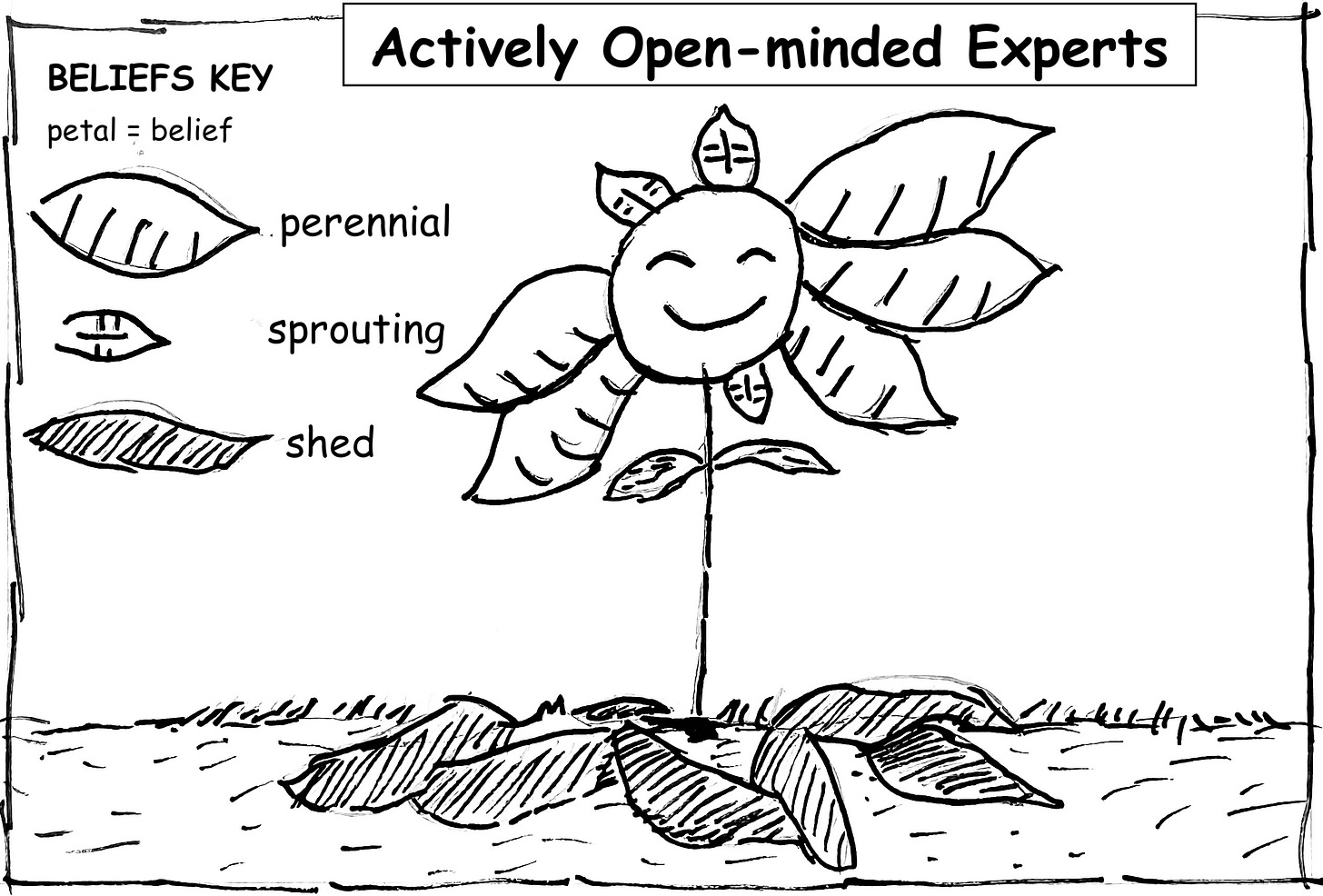#1: Respect-Experts
An attainable trait for aspiring experts
TLDR
Understanding expertise is important, as experts serve as guides in our interconnected and complex world
Recognize the value of actively open-minded thinking in fostering genuine expertise
In our complex world, we depend heavily on experts. A useful way to classify experts is by determining whether their judgments are verifiable or not.
For instance, consider a weather forecaster who predicts that Sunday will be sunny, but the day ends up being cloudy and rainy. This forecaster's predictions are verifiable because we can check if the forecast was correct. In contrast, many important areas involve judgments that are not easily verifiable and are often a matter of interpretation. These experts have been termed respect-experts (Kahneman, Simony, & Sunstein, 2021, Chapter 18).
A financial analyst, for example, isn't a 'respect expert' because their predictions about market trends can be measured against actual market performance; their judgments are verifiable. Fields like diplomacy and philosophy, however, involve respect-experts since their guidance often relies on subjective interpretation. This also applies to underwriting, criminal sentencing, wine tasting, essay grading, and book and movie reviewing
Understanding how to evaluate experts and their knowledge claims is crucial. Respect-experts typically possess traits like raw intelligence and the ability to explain their judgments with clarity and confidence. My favorite trait is being actively open-minded, which means seeking out and being open to new information that could change their minds.
Being actively open-minded isn't just about being right; it's about working towards and improving the likelihood of being right. This mindset is why experts generally show less bias and less noise in their judgments.
Actively open-mindedness is my favorite trait because it's accessible to everyone. It's a foundational characteristic that is easier to develop if you want to establish expertise.
We should be wary of so-called experts who can't change their views or acknowledge others' opinions. Knowledge can become outdated or overly simplistic, and inflexible experts may fail to adapt their thinking to new contexts, reducing their usefulness. Therefore, it's important to seek out experts who continually gain insight and refine their understanding by embracing new information and learning from mistakes.
Reference
Kahneman, D., Simony, O., & Sunstein, C. R. (2021). Noise: A Flaw in Human Judgement. Chapter 18.



